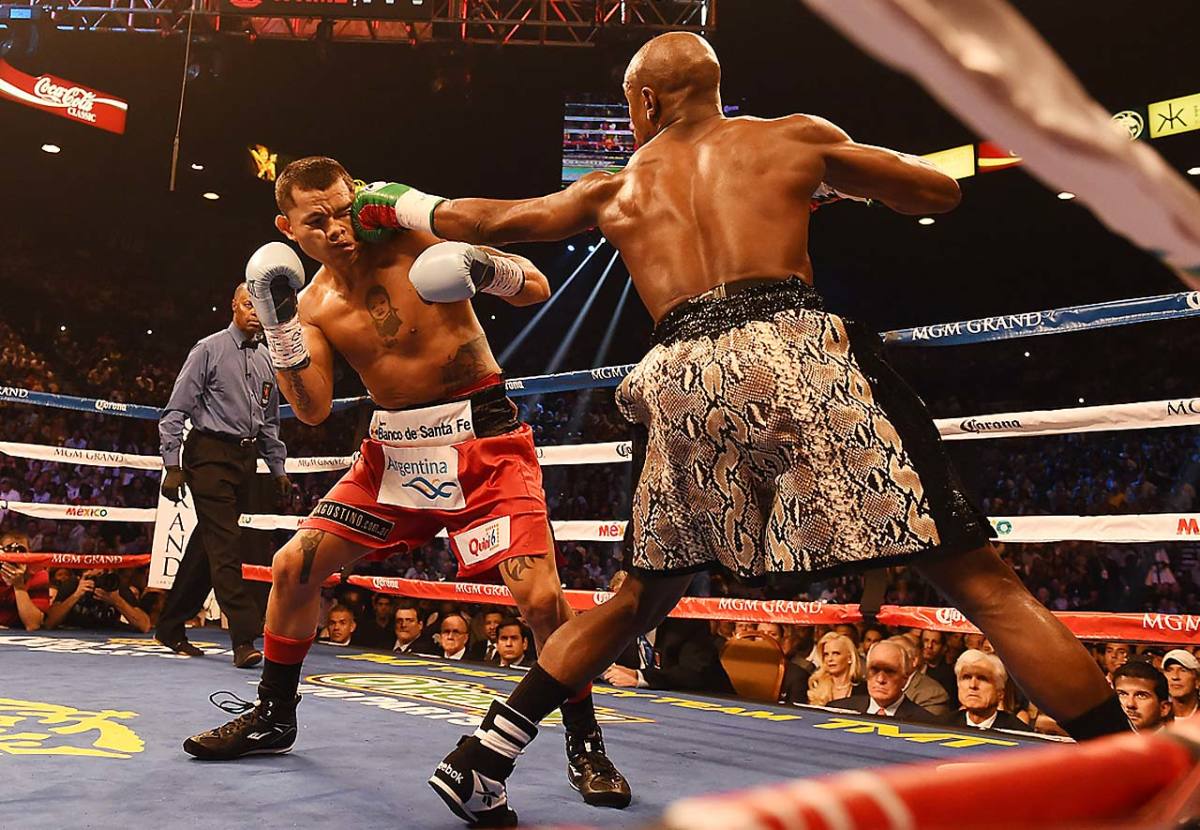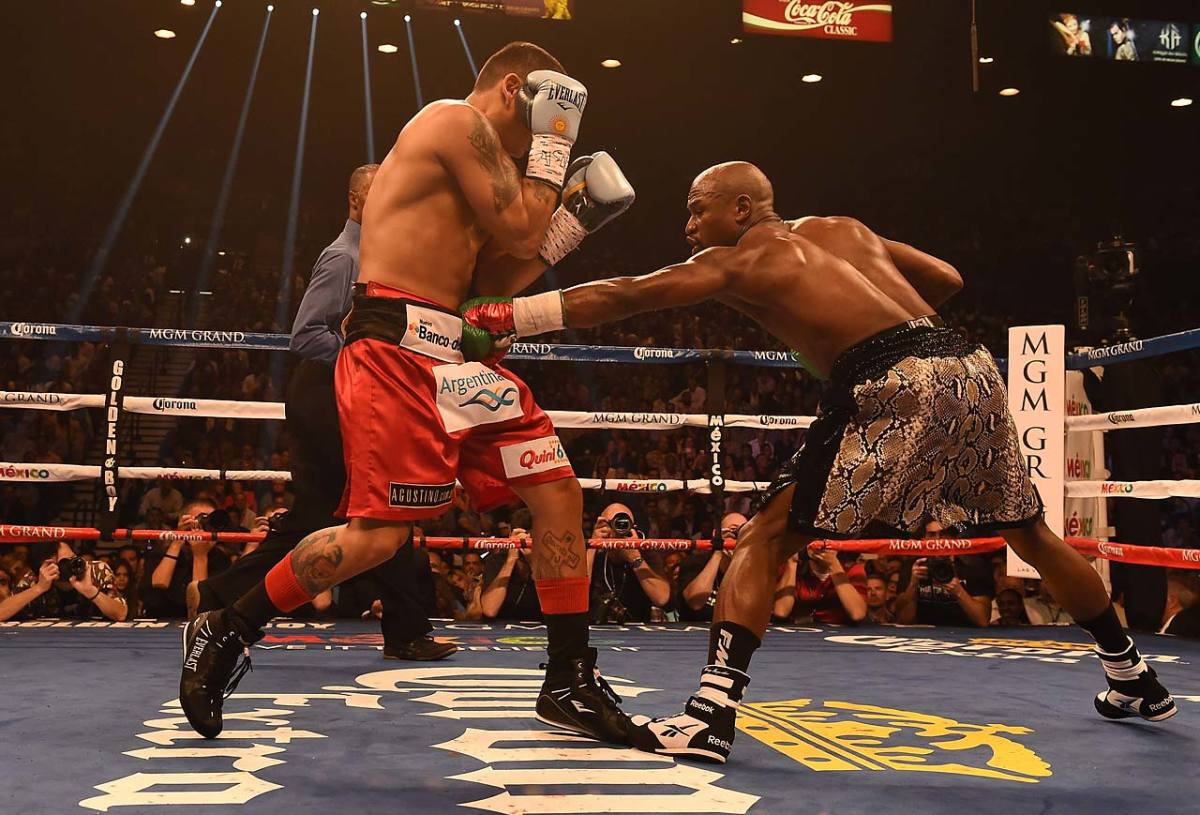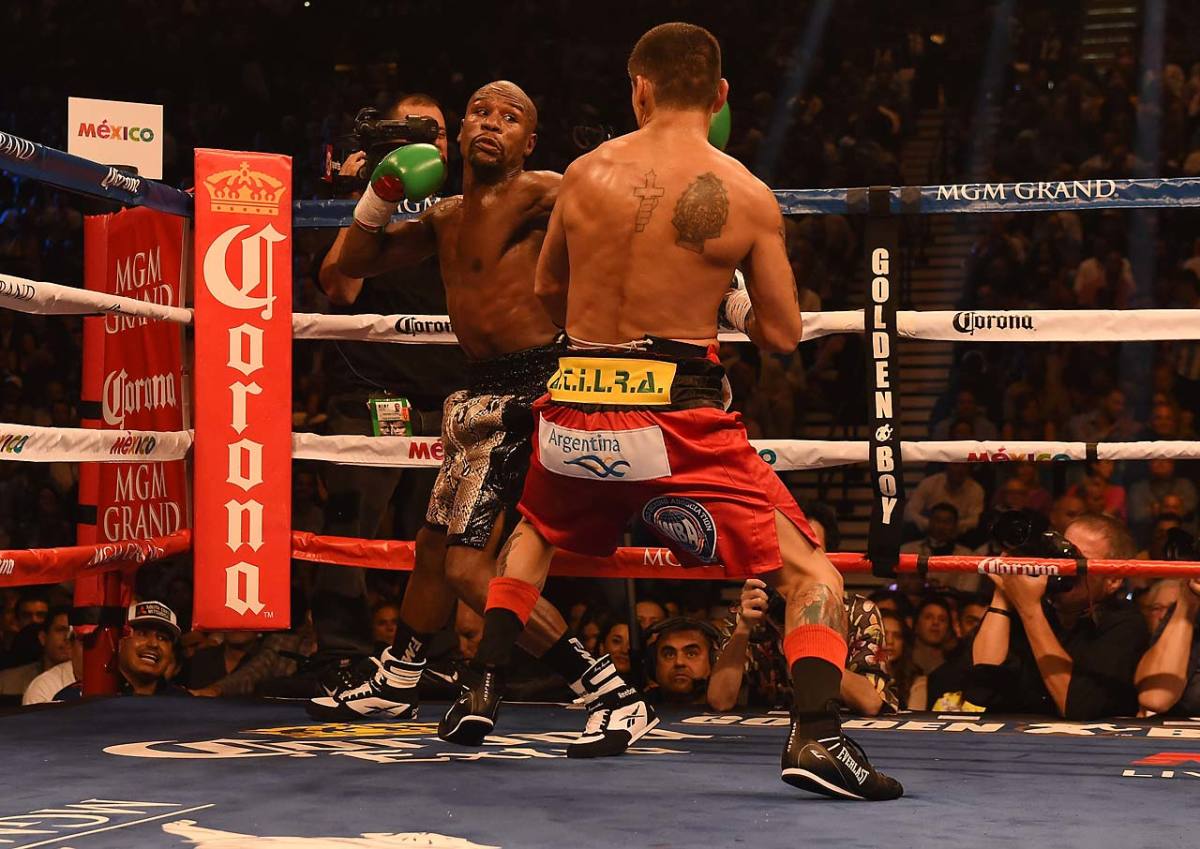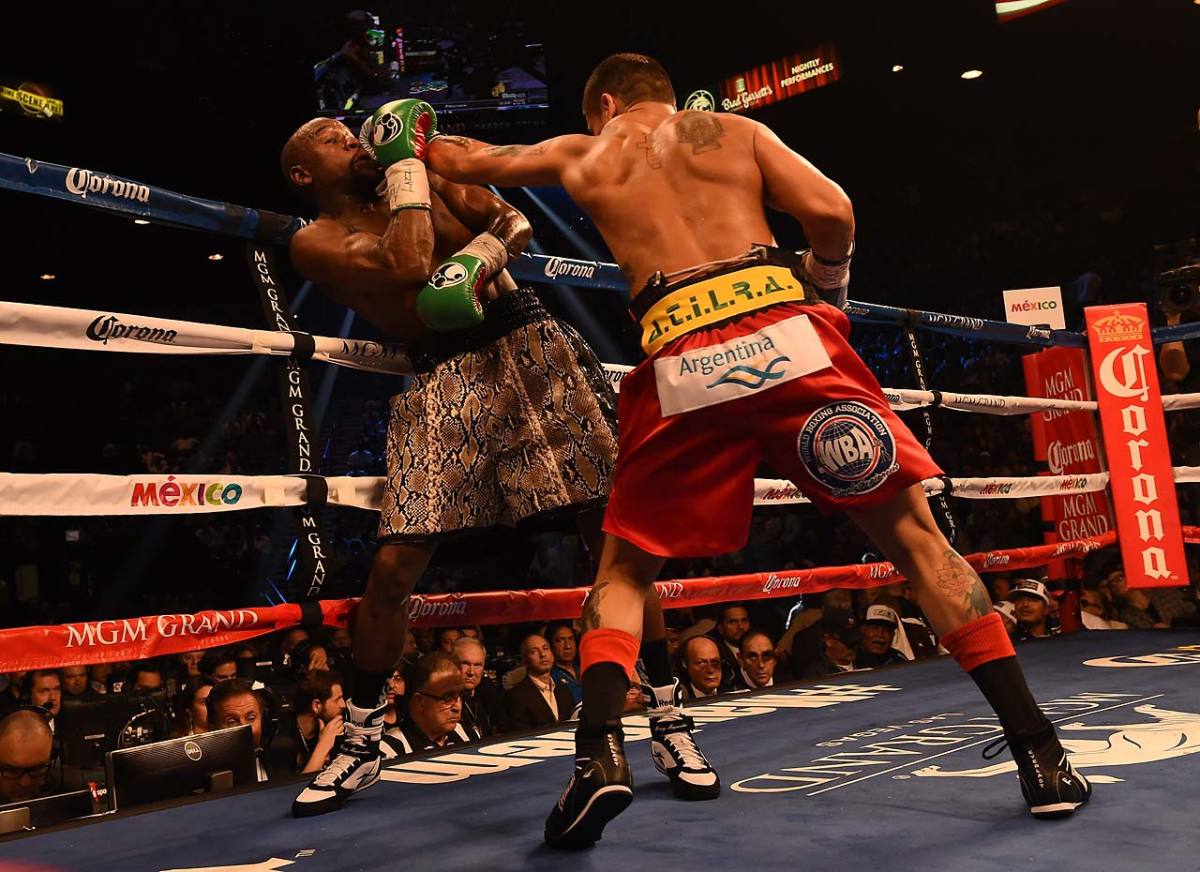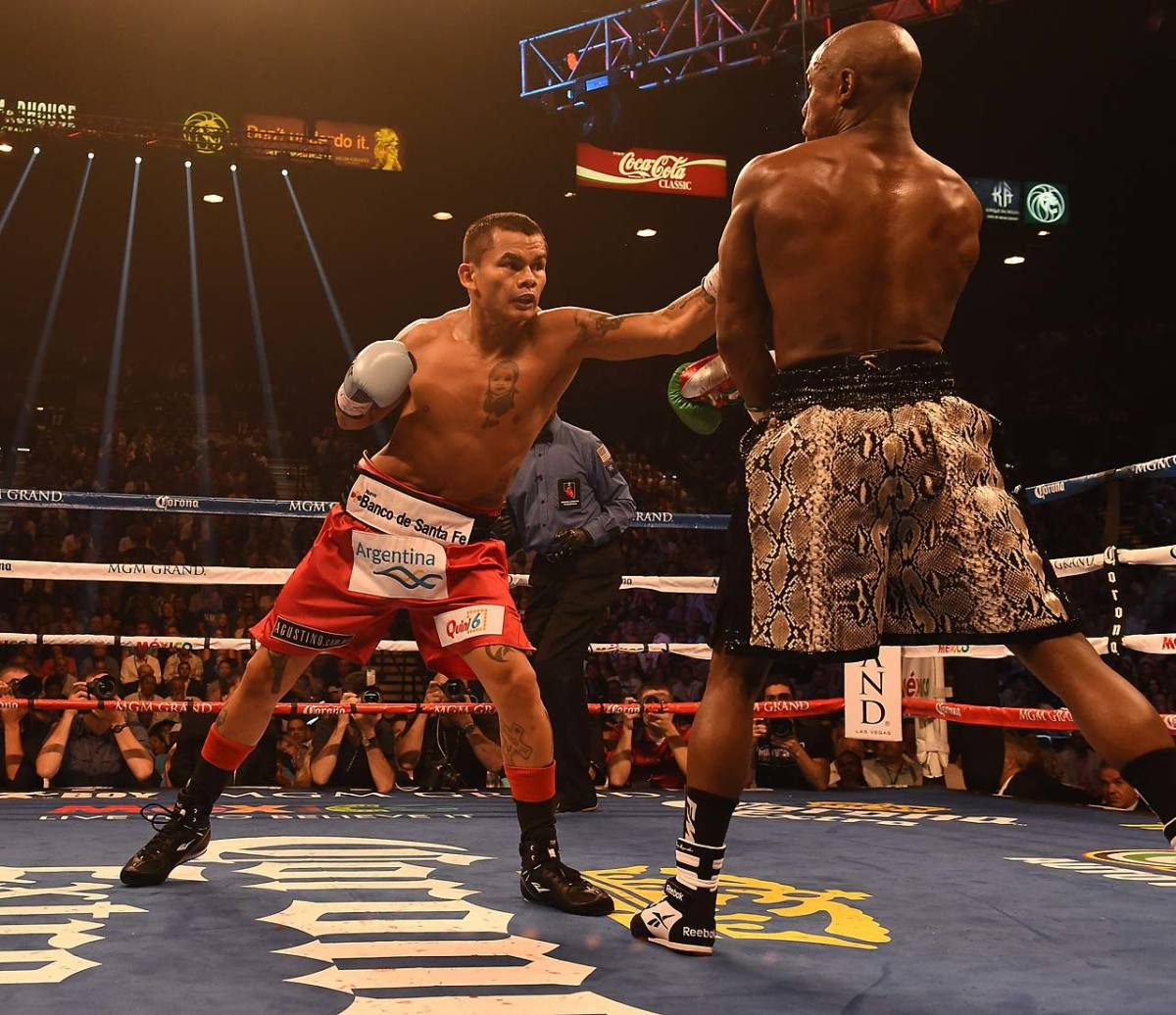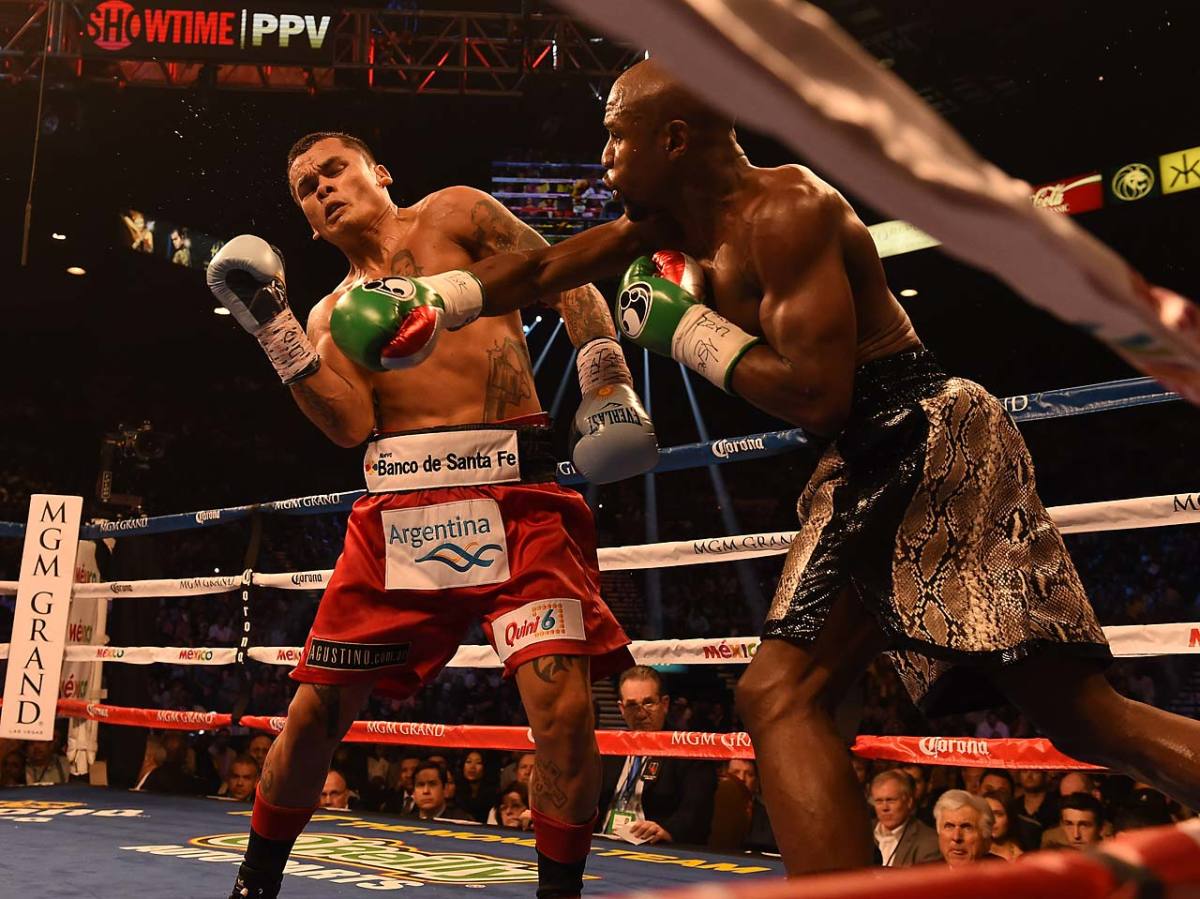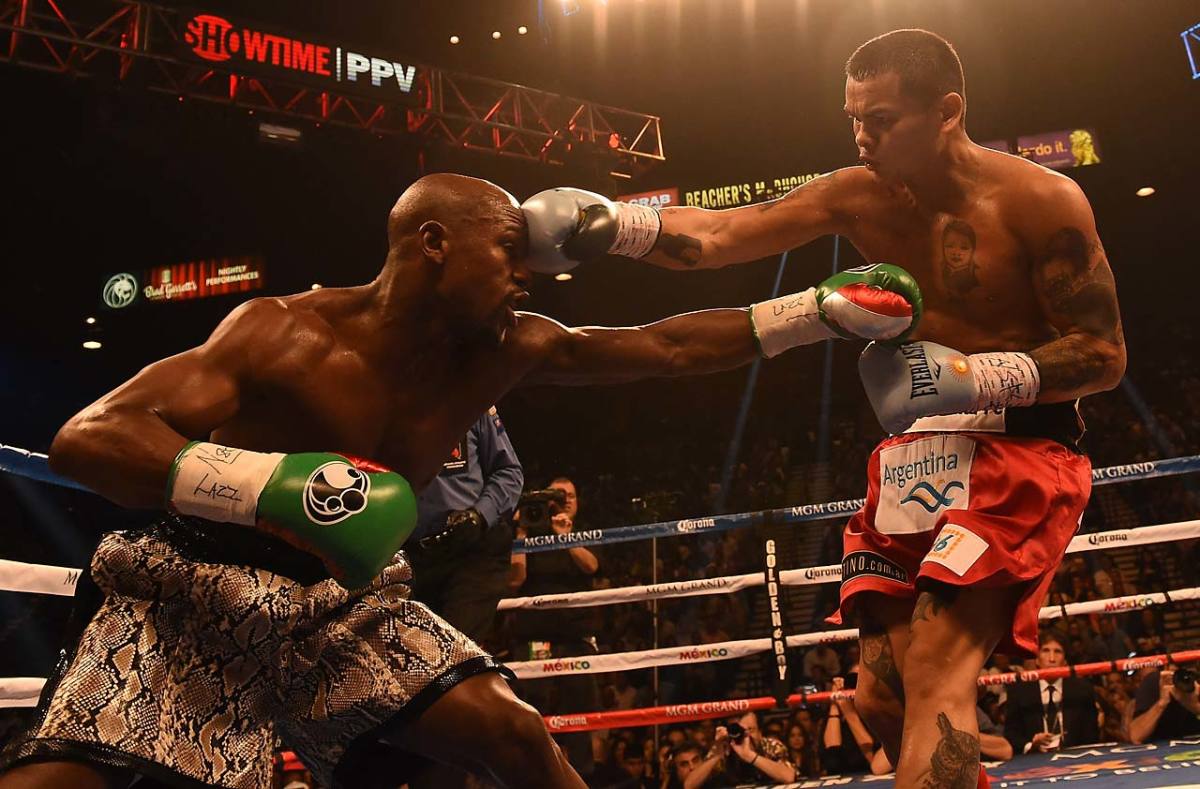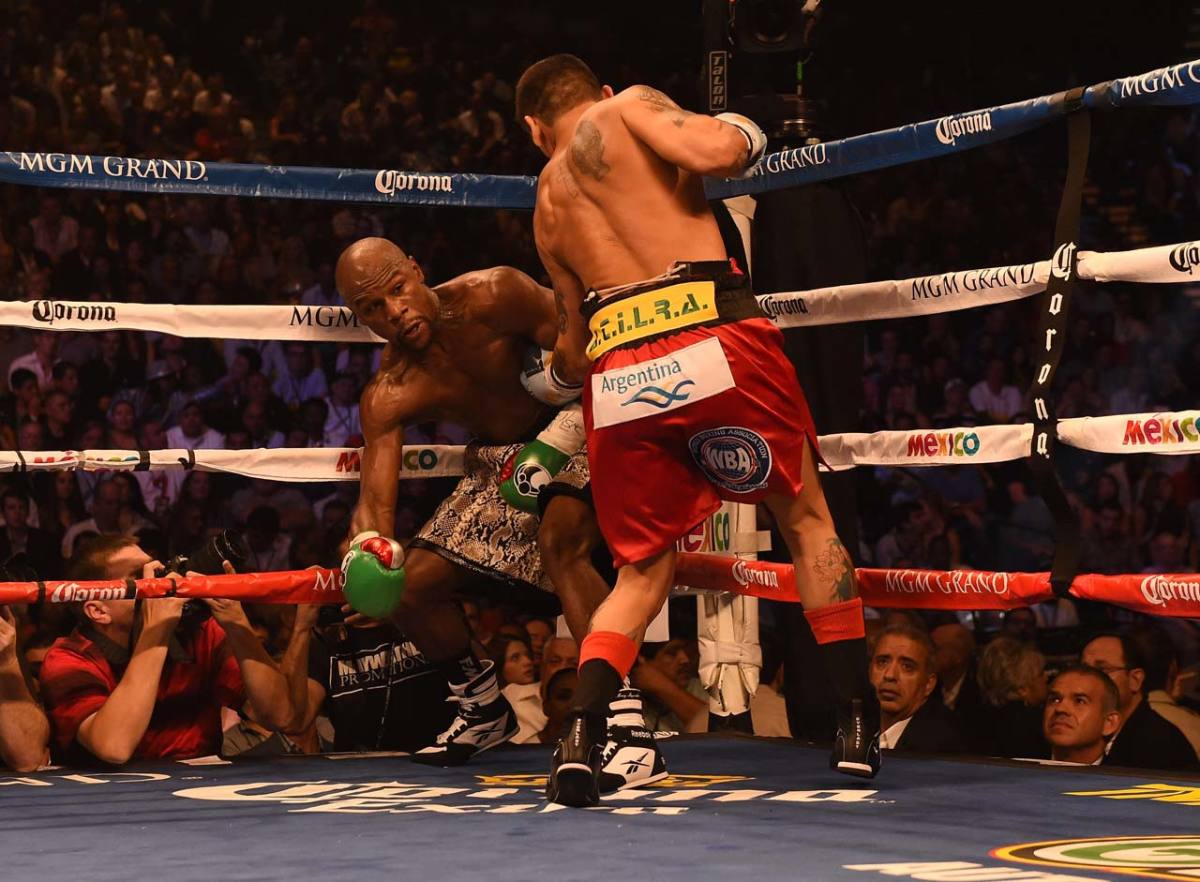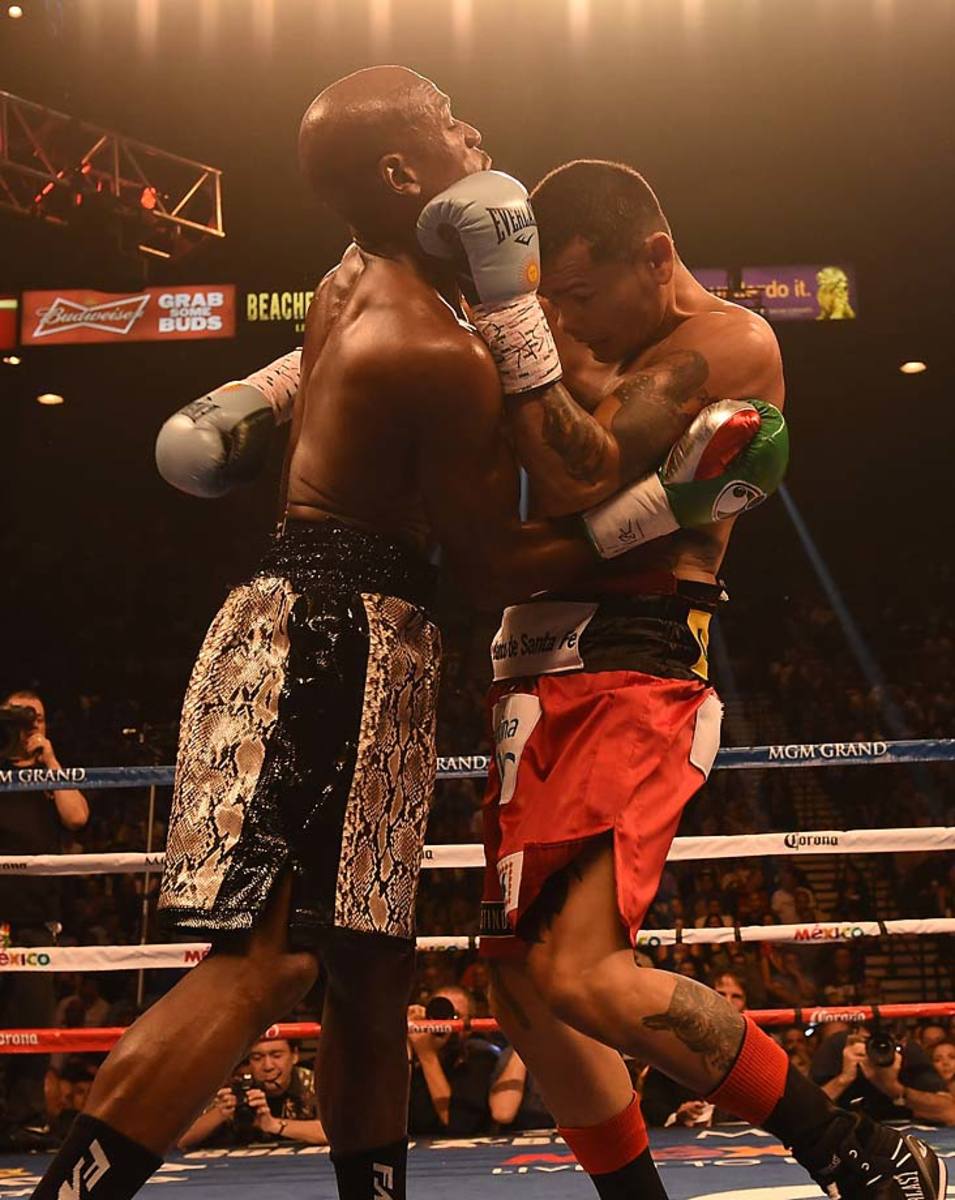Despite his win, Floyd Mayweather remains a controversial champion
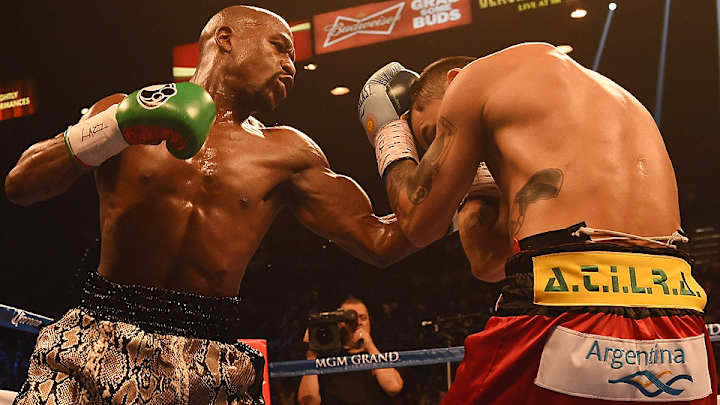
LAS VEGAS -- In victory on Saturday, Floyd Mayweather Jr. overcame international backlash, calls for a boycott, clinches, low blows, head-butts, a tackle, a crowd that booed him loudly and often at the MGM Grand, and that awkward moment when Marcos Maidana bit him on the left glove -- with Mike Tyson and Evander Holyfield, participants in the original Bite Fight, in attendance, no less.
It felt less like a triumph and more like a circus, a weird bout to cap a bad card. That seemed fitting, because Mayweather remains without question the best boxer of his generation, a defensive stalwart, equal parts technician and magician, but yet one who is still defined in large part by who he has not fought (Manny Pacquiao), his legal transgressions and what seems like his conscious decision to vie for one last title: most vilified athlete in sports.
His rematch with Maidana left even less doubt than their first meeting, which was sort of close but not particularly so. The rematch was ugly, the decision unanimous in favor of Mayweather, the crowd as unsatisfied as the champion, who graded himself with a C or a C-plus in a lopsided bout.
Here’s how it ended: with Mayweather in the ring, asked about Pacquiao again, his answers drowned out by the boos and catcalls lobbed his way from the crowd. Hey, at least it wasn’t beer bottles. Then, Maidana told the assembled he thought he won the fight and that he didn’t bite. They booed again, louder, longer.
At that point, the twilight zone asked the participants to vacate the premises.
Mayweather earns unanimous decision vs. overmatched Maidana
In so many ways, Mayweather can’t win. That’s sort of unfair to Mayweather and sort of his own design. As he entered the ring on Saturday, the boxer famous for his undefeated record had already in so many ways lost. He had lost the week, lost control of this promotion, lost control of the narrative, even lost his cool in an interview with CNN.
Gone throughout the week was the usual hubris, the hate-me-as-long-as-you-pay-to-watch-me shtick. Mayweather perfected that act over the years. It made him rich and famous, if not beloved, well known for all the wrong reasons and some of the right ones.
This week, Mayweather apologized for comments he made about Ray Rice and domestic violence, one of those vague apologies to anyone, anywhere who might have been offended, but still, a rare backpedal away from controversy, perhaps because the comments were that bad. Various groups called for fans to not buy his fight. Then he walked out of a satellite interview with CNN’s Rachel Nichols, skipped the interviews scheduled after that, retreated to his mansion and his acolytes and his various social media accounts, where he alone controls the message -- cars, cash, female company, college football bets, pool parties and bubble baths.
Mayweather collected $32 million in advance of the rematch, and he will likely double or triple that as the back-end money is collected. But this fight week felt different than other recent Mayweather fight weeks, felt different, even, than when he dismantled Robert Guerrero in his return after serving a jail sentence for domestic violence. The backlash here seemed stronger, more wide-ranging, the chorus bigger, louder, more enraged. It felt like Mayweather’s façade had worn even more thin.
It has been a strange few months in the Mayweather orbit, strange even by his standards. There was the confrontation by the rapper T.I. at a local Fatburger, the reading challenge posed by the rapper 50 Cent and the civil lawsuit filed by ex-fiancee Shantel Jackson that alleged physical and emotional abuse. 50, once Mayweather’s bestie, challenged him to read one page from a Harry Potter book for a $750,000 charitable donation. Thus, this week alone Mayweather weighed in on the scales (146.5 pounds on Friday), literacy and domestic violence. He defended far more than his unblemished record.
Double standard: We condemn Ray Rice; but what about Mayweather?
Mayweather is used to controversy, of course. He courted it, welcomed it, encouraged it, fueled a career with it, rose to pay-per-view and pound-for-pound king despite it, or because of it. This is the first time, though, that he seemed fazed by it. It made him moody, uncharacteristically withdrawn. That’s what felt different this week. It had little impact in the ring, but we will find out shortly how much impact it had in terms of pay-per-view buys.
The CNN interview unfolded like an uppercut to an unguarded chin. Nichols went after Mayweather harder than most of his opponents. Her questions were pointed and rooted in his well-documented legal history. She cited the Deadspin report that detailed seven allegations of assault by five different women. Mayweather stared blankly into the camera, dropped an “only God can judge me” and eventually walked off, away from interviews required in his contract.
On Saturday, Mayweather walked slowly into the ring minus the usual celebrity flanks, no Justin Bieber, no Lil’ Wayne, not with him, anyway, just Mayweather and his bodyguards and his entourage, the champion surrounded, and yet, so oddly alone.
Maidana’s entrance showed how much had changed since their first bout. So many sponsors’ patches filled his shorts they looked like a NASCAR vehicle. So many hangers-on filled his corner the ring looked in danger of collapse.
The second fight started like the first fight ended, with Mayweather in control, operating at a safer distance, away from Maidana’s frenzied, wild, desperate attacks. That’s what those who watched the first bout expected, Mayweather on his bicycle, fading in and out, striking when he could but, more than anything, avoiding the onslaughts he anticipated. When Maidana pressed the action, when he pushed Mayweather into corners, the champion slipped away.
With three fights left in Floyd Mayweather's career, a father reflects
In the final seconds of Round 3, though, Maidana landed a big overhand right that staggered Mayweather -- exactly the kind of blow he needed, wanted, hoped to land. It came at the worst time, right at the bell. He came out attacking again in the fourth, backed Mayweather into corners, against the ropes.
That didn’t last long. Maidana settled back, tried to box Mayweather, a curious strategy at best. That’s Mayweather’s game -- slip and strike, counter, counter, counter, backpedal away from danger, duck in and out of clinches. The crowd booed him for it in the sixth, because it wanted action, wanted blood. But, really, it was the smartest approach. It kept Mayweather in control and out of danger and took Maidana out of his depth.
Then came the bite. “I didn’t know what it was,” Mayweather said. “Something happened, but then my fingers were numb.” The fight effectively ended at that point.
Everywhere Mayweather went this week, he wore T-shirts and hats and jewelry that read "TBE," or "The Best Ever." It seems, as he nears the end of his career, that he is increasingly mindful of his legacy, of his place in boxing history. But that also seems increasingly out of his control, dictated by other factors.
Even when Mayweather wins sometimes he loses, and it felt that way again on Saturday. Mayweather remained undefeated and under fire, and he did not advance his case for anything other than boxing’s most chaotic and controversial champion.
GALLERY: SI's best photos from Mayweather-Maidana II
Mayweather defeats Maidana
